Pet Scanner Enhances Diagnostic Imaging Services at UF Veterinary Hospital at WEC
December 20, 2023 Comments Off on Pet Scanner Enhances Diagnostic Imaging Services at UF Veterinary Hospital at WEC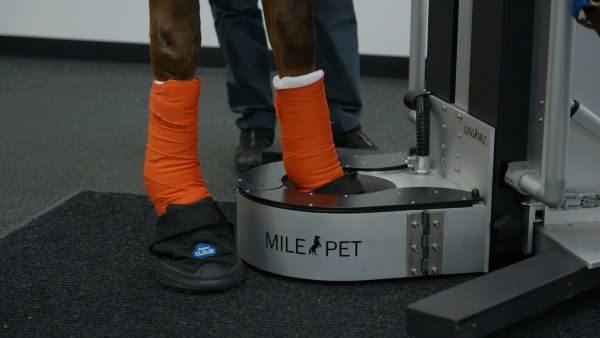
By: UF Veterinary Hospital at WEC Here at the UF Veterinary Hospital at WEC, we are the only facility in the area to offer PET scan along with standing CT and standing MRI available in the same hospital. The PET machine itself is similar to a traditional bonescan machine, in that it uses an injectable […]
Continue reading …KER Equine Health and Nutrition Conference at Golden Ocala Golf and Equestrian Club
December 12, 2023 Comments Off on KER Equine Health and Nutrition Conference at Golden Ocala Golf and Equestrian Club
From KER: Kentucky Equine Research is pleased to announce its 27th Equine Health and Nutrition Conference, to be held February 5-6, 2024, at the Golden Ocala Golf and Equestrian Club in Ocala, Florida. The two-day scientific symposium is intended for veterinarians, nutritionists, and researchers, and features a roster of world-renowned speakers, each presenting cutting-edge information […]
Continue reading …Donkeys Need More Protection in Winter
December 12, 2023 Comments Off on Donkeys Need More Protection in Winter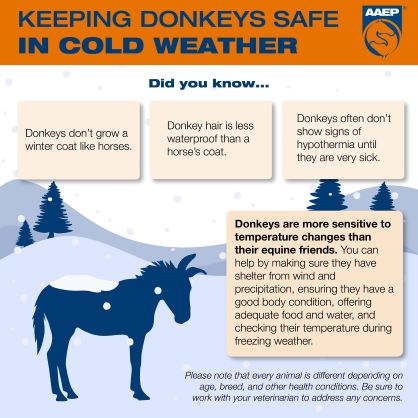
From University of Portsmouth: 16 November 2017 Donkeys are not as able to keep warm as horses in the UK’s cold, damp winters, according to a new study. The study, by scientists at the Universities of Portsmouth and Canterbury Christ Church University, recommends the animals are given extra winter protection. The study was funded by The Donkey […]
Continue reading …Weighing Horses: The Truth About Weight Tapes
December 7, 2023 Comments Off on Weighing Horses: The Truth About Weight Tapes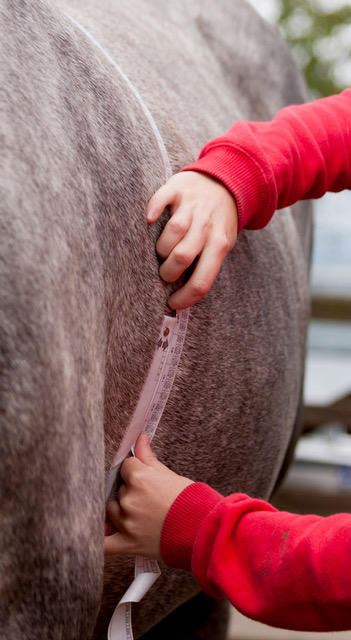
By Kentucky Equine Research Staff: The mighty weight tape: simplistic in design and easy to use, yet concerningly inaccurate in some situations. Does this mean that weight tapes are useless? Not at all, though they should be employed with an understanding of factors that may affect the reading. To better understand weight tape measurements, a […]
Continue reading …Discussing Colic “Fresh Scoop” Podcast from Morris Animal Foundation
December 6, 2023 Comments Off on Discussing Colic “Fresh Scoop” Podcast from Morris Animal Foundation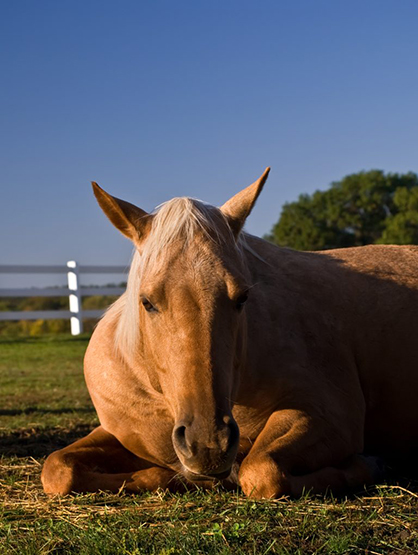
From Equine Science Update: The latest edition of the Fresh Scoop podcast from Morris Animal Foundation covers colic in horses. Join Drs. Kelly Diehl and Sharanne Raidal as they discuss the subject, including types of colic, clinical signs, diagnostics, treatments and ongoing research. For more details, go to: Understanding colic in horses (morrisanimalfoundation.org) The Morris Animal […]
Continue reading …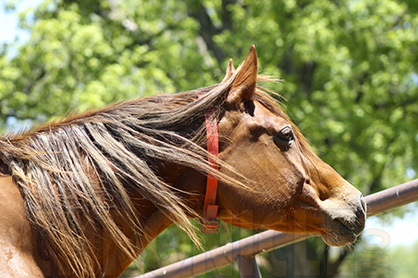
By Kentucky Equine Research Staff Landowners throughout North America and other continents enjoy the numerous benefits fescue offers as forage. The perennial’s hardiness allows it to thrive despite heavy hoof traffic, intense grazing, and adverse growing conditions. Despite its advantages, some fescue is infected with the specific endophyte, Acremonium coenophialum. An endophyte is a fungus that […]
Continue reading …Injury Rehab in Horses: Pros, Cons, and Future of Adipose-Derived Stem Cells
November 27, 2023 Comments Off on Injury Rehab in Horses: Pros, Cons, and Future of Adipose-Derived Stem Cells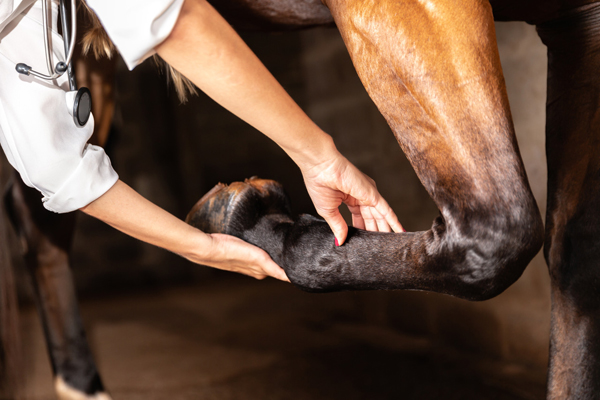
August 9, 2023 By Kentucky Equine Research Staff Injury Rehab in Horses: Pros, Cons, and Future of Adipose-Derived Stem Cells August 9, 2023 By Kentucky Equine Research Staff Equine musculoskeletal injuries such as those involving tendons, ligaments, and joints can be treated with stem cells to amplify the benefits of traditional therapies and rehabilitation programs. Adipose (fat) […]
Continue reading …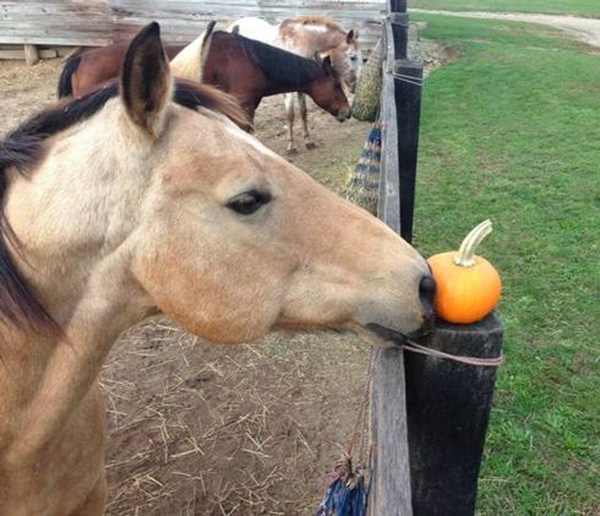
When considering feeding fruits such as pumpkins to horses, always first consider if it is potentially toxic to your horse. Orange pumpkins, including the seeds are safe to feed to horses.
Continue reading …Strategic Horse Feeding: Switching Feeds
November 17, 2023 Comments Off on Strategic Horse Feeding: Switching Feeds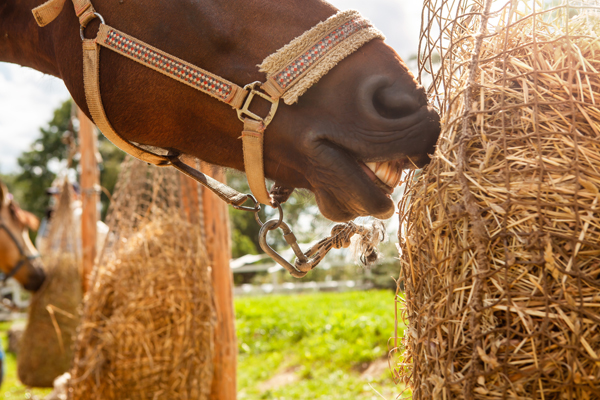
From Kentucky Equine Research: Horses require different feeds for different stages of life. Make the switchover from one feed to another as seamless as possible with these tips. Above all, make feed changes gradually. Offering new feed can be approached in two ways: (1) taper off the old feed completely and then begin the […]
Continue reading …Recall of 50 lb. Bags of Retriever All Life Stages Mini Chunk Chicken Recipe Dry Dog Food
October 27, 2023 Comments Off on Recall of 50 lb. Bags of Retriever All Life Stages Mini Chunk Chicken Recipe Dry Dog Food
From FDA.gov: TFP Nutrition Initiates Voluntary Recall of 50 lb. Bags of Retriever All Life Stages Mini Chunk Chicken Recipe Dry Dog Food Due to Possible Salmonella Health Risk When a company announces a recall, market withdrawal, or safety alert, the FDA posts the company’s announcement as a public service. FDA does not endorse either […]
Continue reading …







